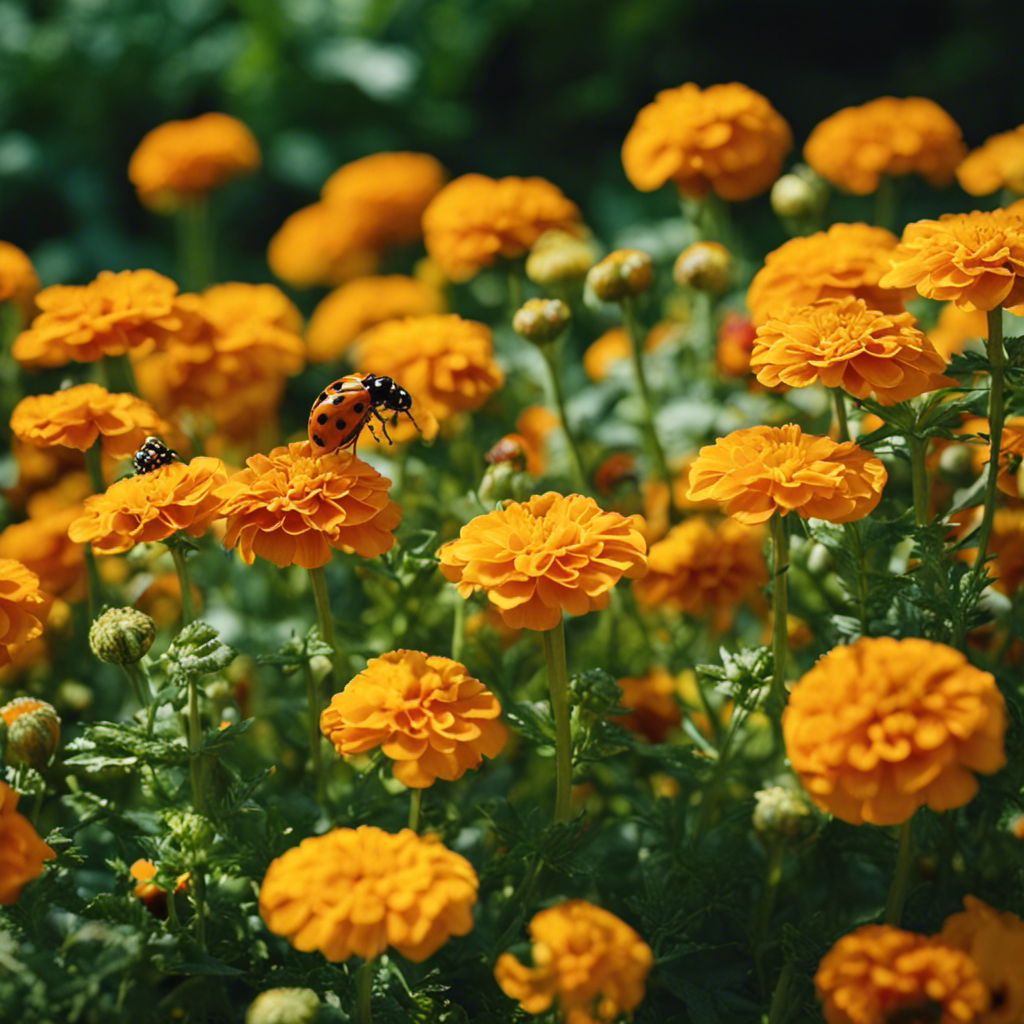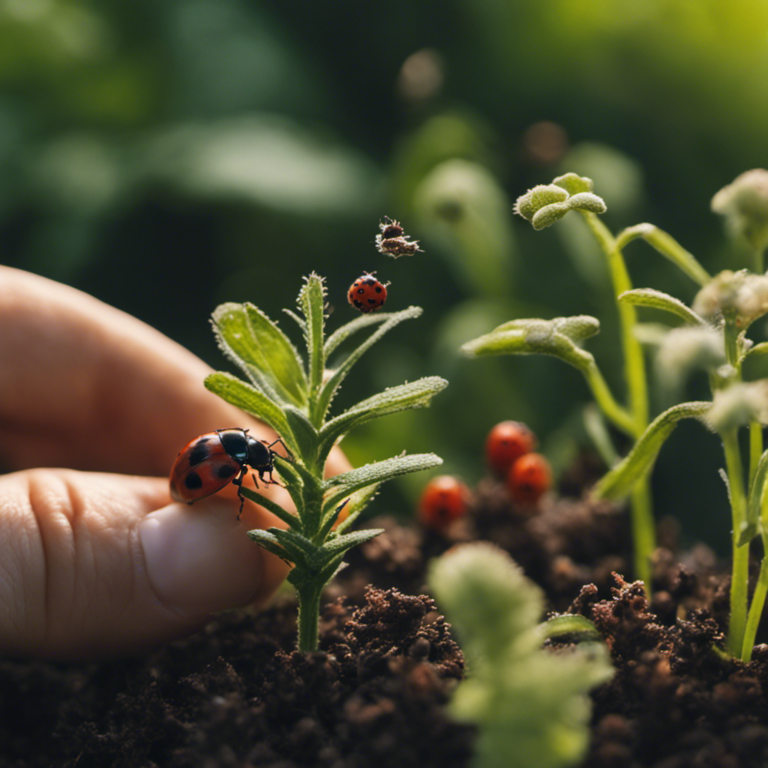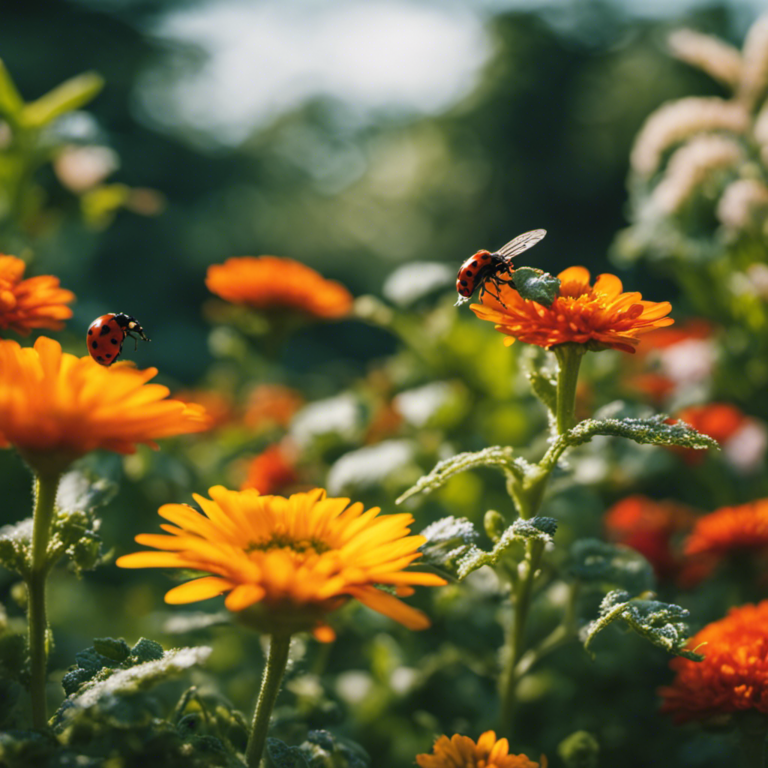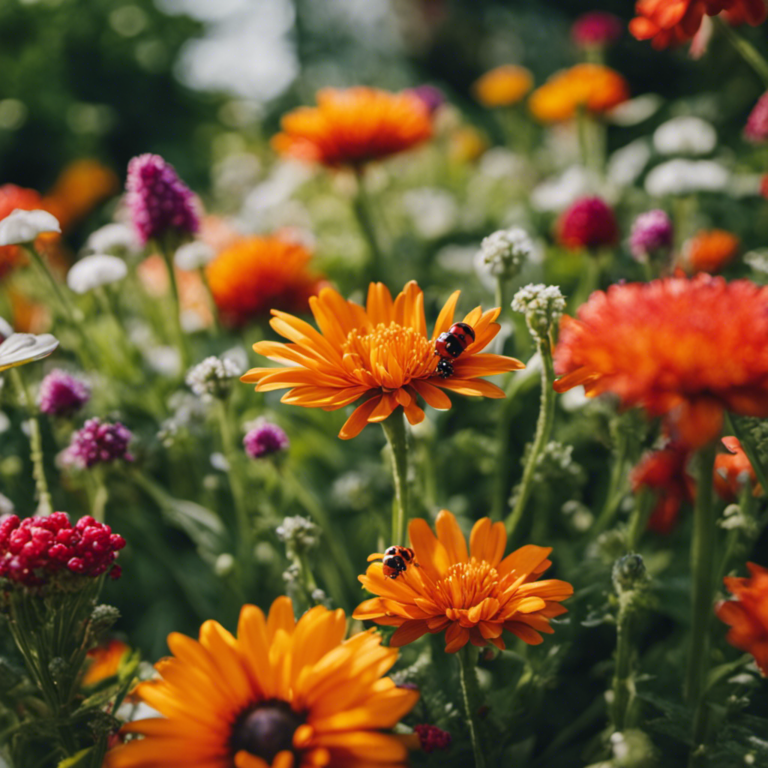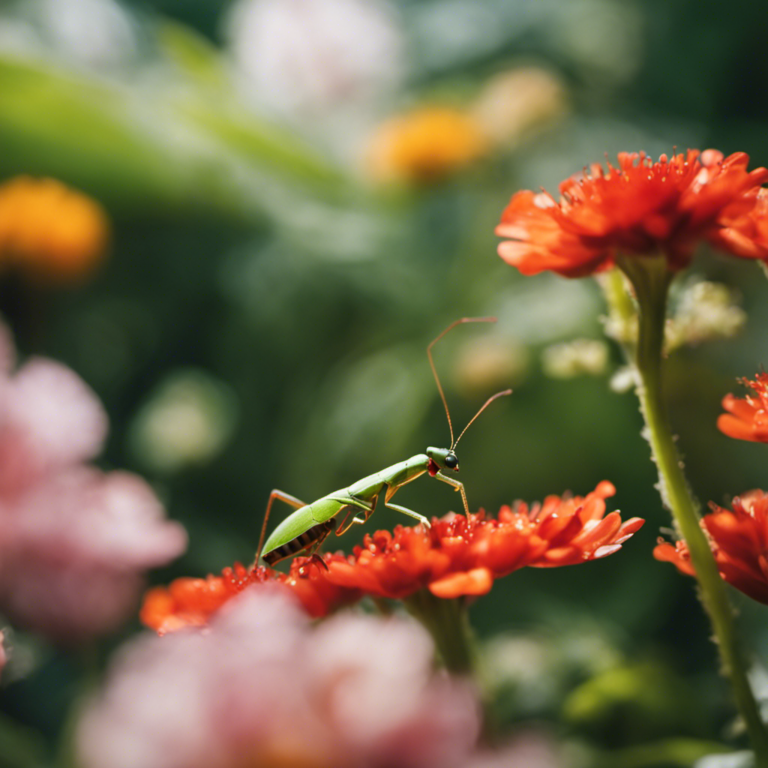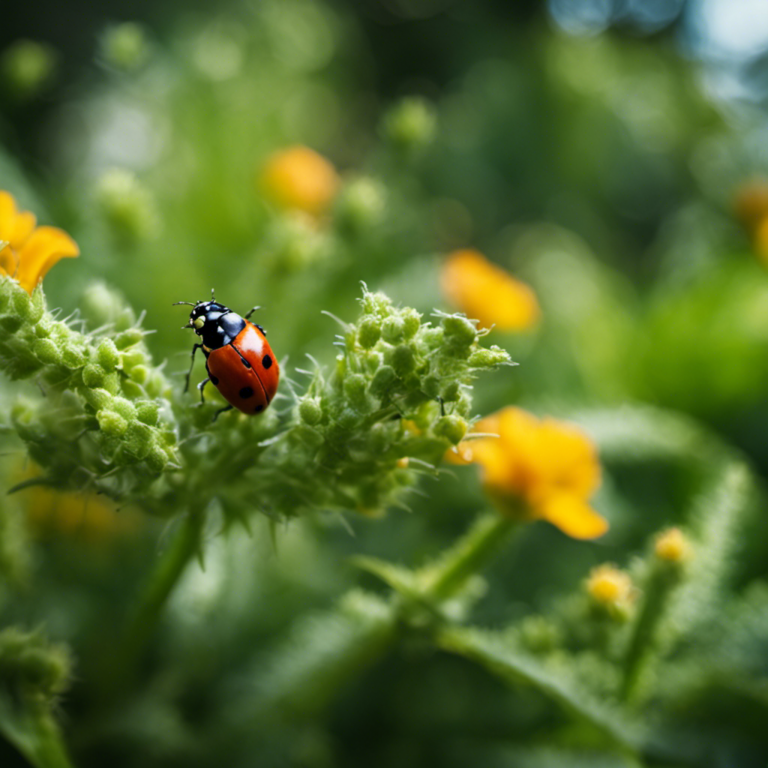Safeguard Your Edible Garden With Natural Pest Repellents
Imagine walking through your flourishing garden, picking ripe tomatoes and fresh lettuce straight from the soil. Now picture hordes of pests descending upon your beloved plants, ready to devour all your hard work.
But don’t worry! You can protect your edible garden and preserve your harvest with natural pest repellents.
Explore the benefits of organic pest control, essential oils, natural predators, homemade recipes, and companion planting.
Take control and ensure your garden thrives with these simple and effective solutions.
‘Creating a pest-free environment in your garden is essential to maintaining a thriving and healthy crop. By using natural methods, you can protect your plants without harmful chemicals and pesticides.
Key Takeaways
Protecting your edible garden from pests is a wise and effective choice. Instead of relying on chemical pesticides, you can use natural pest repellents that harness the power of essential oils and natural predators. By adopting organic pest control methods and implementing companion planting techniques, you can create a balanced environment that deters pests and promotes the healthy growth of your precious plants.
There are various homemade repellent recipes and strategies you can employ to safeguard your garden. These natural solutions not only protect your plants but also allow you to witness the wonders of nature in action. Embracing the power of nature and avoiding harmful chemicals is not only beneficial for your garden but also for the overall well-being of the environment.
Benefits of Organic Pest Control
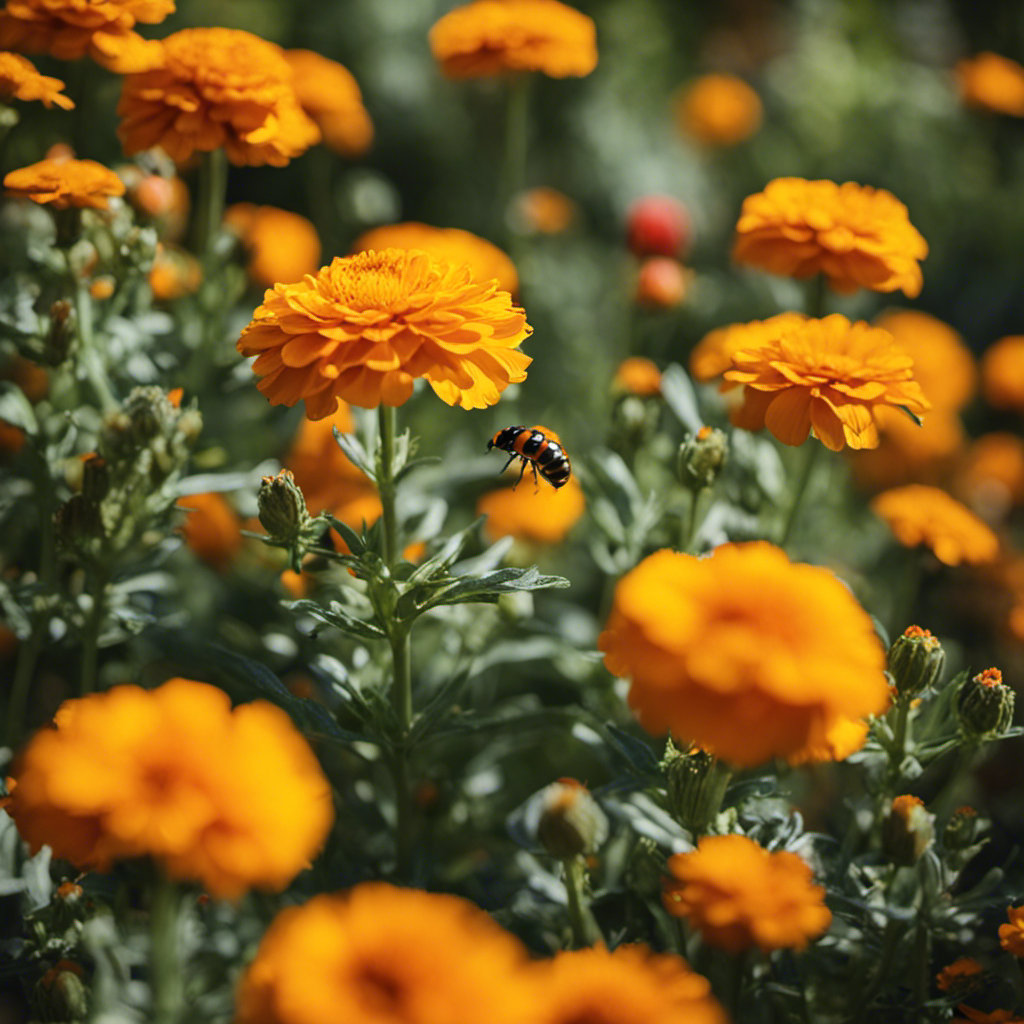
Are you wondering why choosing organic pest control is the best option for protecting your edible garden?
Let’s explore the advantages of organic pest control and why it’s superior to using chemical pesticides.
One of the main benefits of organic pest control is its safety for the environment. Unlike chemical pesticides that can contaminate soil, water, and air, organic pest control methods utilize natural ingredients that don’t harm the ecosystem.
Additionally, organic pest control is healthier for you and your family. Chemical pesticides can leave harmful residues on your fruits and vegetables, posing a risk to your health. On the other hand, with organic pest control, you can enjoy fresh produce that’s free from pesticides.
Essential Oils for Pest Repellent
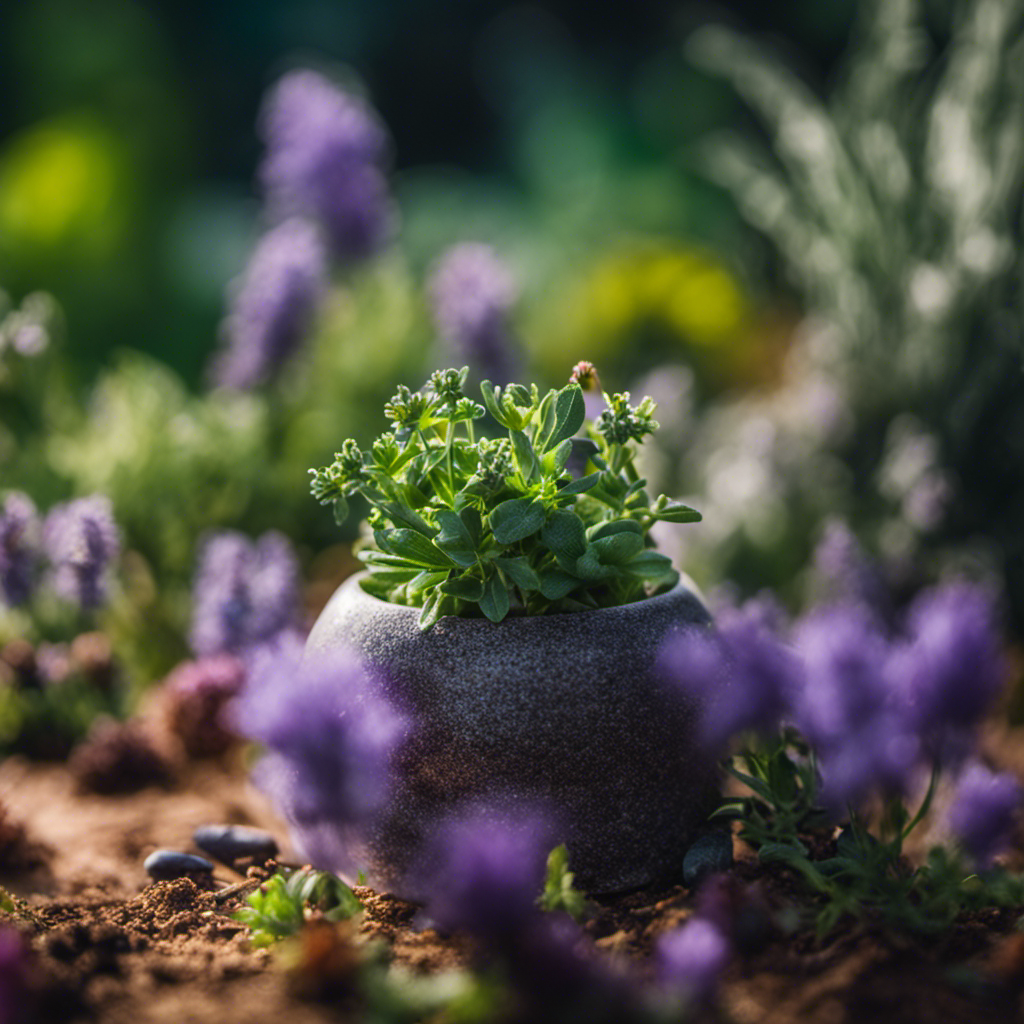
Protect your edible garden from pests using essential oils as a natural repellent. Essential oils are a great alternative to chemical pest control methods and can help keep your garden free from unwanted visitors. Certain essential oils have properties that repel pests, such as ants, aphids, and beetles, without causing harm to your plants or pets.
For example, peppermint oil is known to effectively deter ants and spiders. Citronella oil is a popular choice for keeping mosquitoes at bay, while neem oil is a powerful repellent for a wide range of garden pests.
To use essential oils for pest control, simply dilute a few drops in water and spray the mixture onto your plants. Alternatively, you can place cotton balls soaked in essential oils near the affected areas. Remember to reapply the oils regularly, especially after rainfall or irrigation, to ensure their continued effectiveness.
Using essential oils as a natural pest repellent is a safe and eco-friendly way to protect your garden and enjoy a bountiful harvest.
Natural Predators for Pest Management
Utilizing natural predators is an effective method for managing pests in your edible garden. Integrated pest management emphasizes the use of biological control, which involves introducing beneficial insects or animals that prey on pests. These natural predators can help maintain a balance in your garden by controlling pest populations without the need for harmful chemicals.
For example, ladybugs are voracious eaters of aphids, mites, and other soft-bodied insects that can damage your plants. You can encourage ladybugs to stay in your garden by planting flowers such as daisies, marigolds, and yarrow, which provide them with nectar and pollen. Praying mantises are another beneficial insect that feeds on a wide range of garden pests.
Additionally, attracting birds, frogs, and toads to your garden by providing water sources and suitable habitats can be beneficial. By embracing biological control methods, you can effectively manage pests while maintaining a healthy and thriving edible garden.
Homemade Pest Repellent Recipes
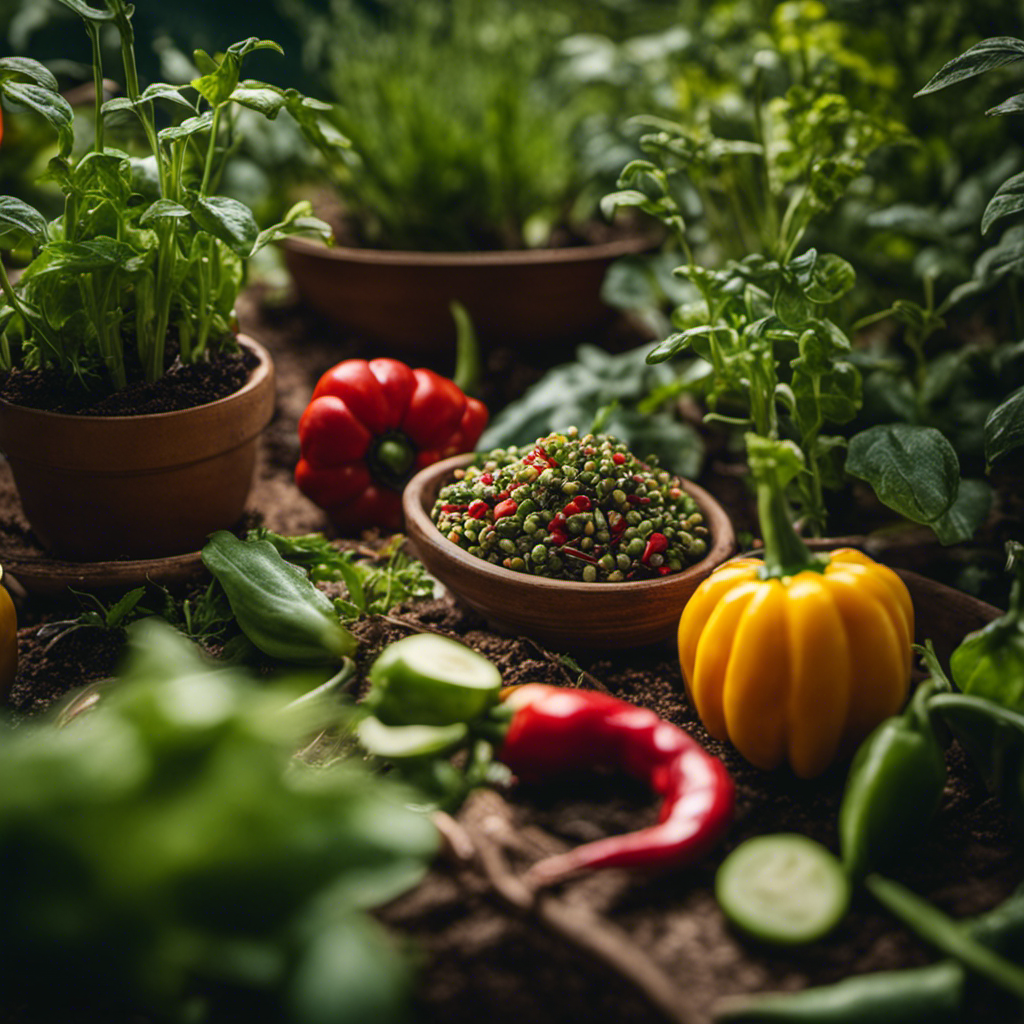
To effectively protect your edible garden from pests, it’s important to regularly create and use homemade pest repellents. DIY pest repellent recipes are a cost-effective and natural solution for managing pests in your garden.
One effective recipe involves making a garlic and chili pepper spray. Simply blend 3 cloves of garlic, 2 tablespoons of chili flakes, and 1 quart of water until smooth, then strain the mixture into a spray bottle.
Another recipe utilizes neem oil, a natural insect repellent. Mix 2 tablespoons of neem oil with 1 gallon of water and add a few drops of dish soap. Shake well and spray the mixture on your plants.
These homemade pest repellents are organic and safe for your garden while effectively keeping pests away.
Companion Planting for Pest Control
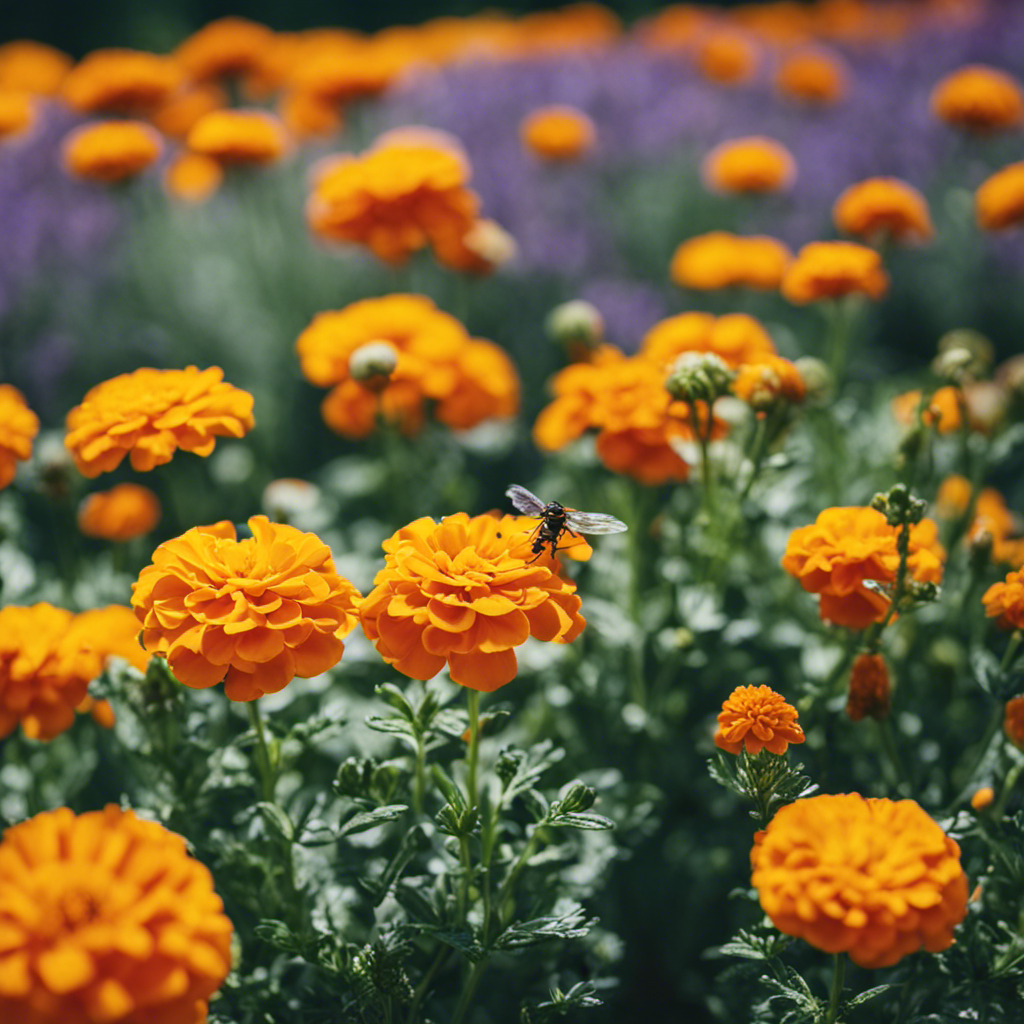
Companion planting is a highly effective strategy for controlling pests in your edible garden. This method involves growing specific plants together to create a beneficial environment that deters pests. One advantage of companion planting is that it confuses pests by masking the scent of the desired crops or attracting helpful insects that feed on pests.
For example, planting marigolds alongside tomatoes can repel nematodes while also attracting important pollinators like bees.
Another successful technique is trap cropping, which involves planting a sacrificial crop to divert pests away from your main crops. For instance, planting radishes near lettuce can lure aphids to the radishes instead, protecting your lettuce.
Conclusion
Utilizing natural pest repellents in your edible garden is a smart and effective choice. By using organic pest control methods and harnessing the power of essential oils and natural predators, you can protect your precious plants from unwanted pests.
With homemade repellent recipes and companion planting techniques, you can create a balanced environment that deters pests and promotes healthy growth.
Safeguard your edible garden with these natural solutions and witness the wonders of nature in action.
